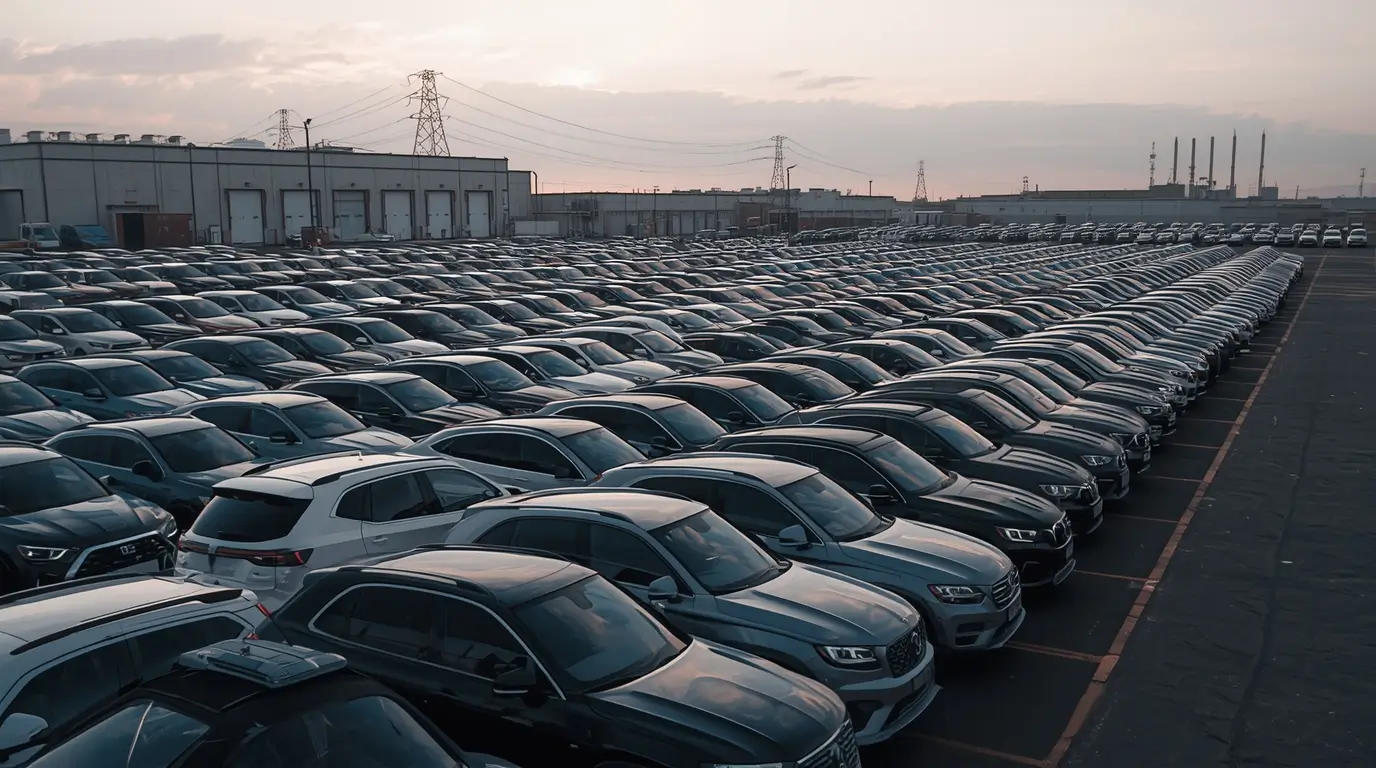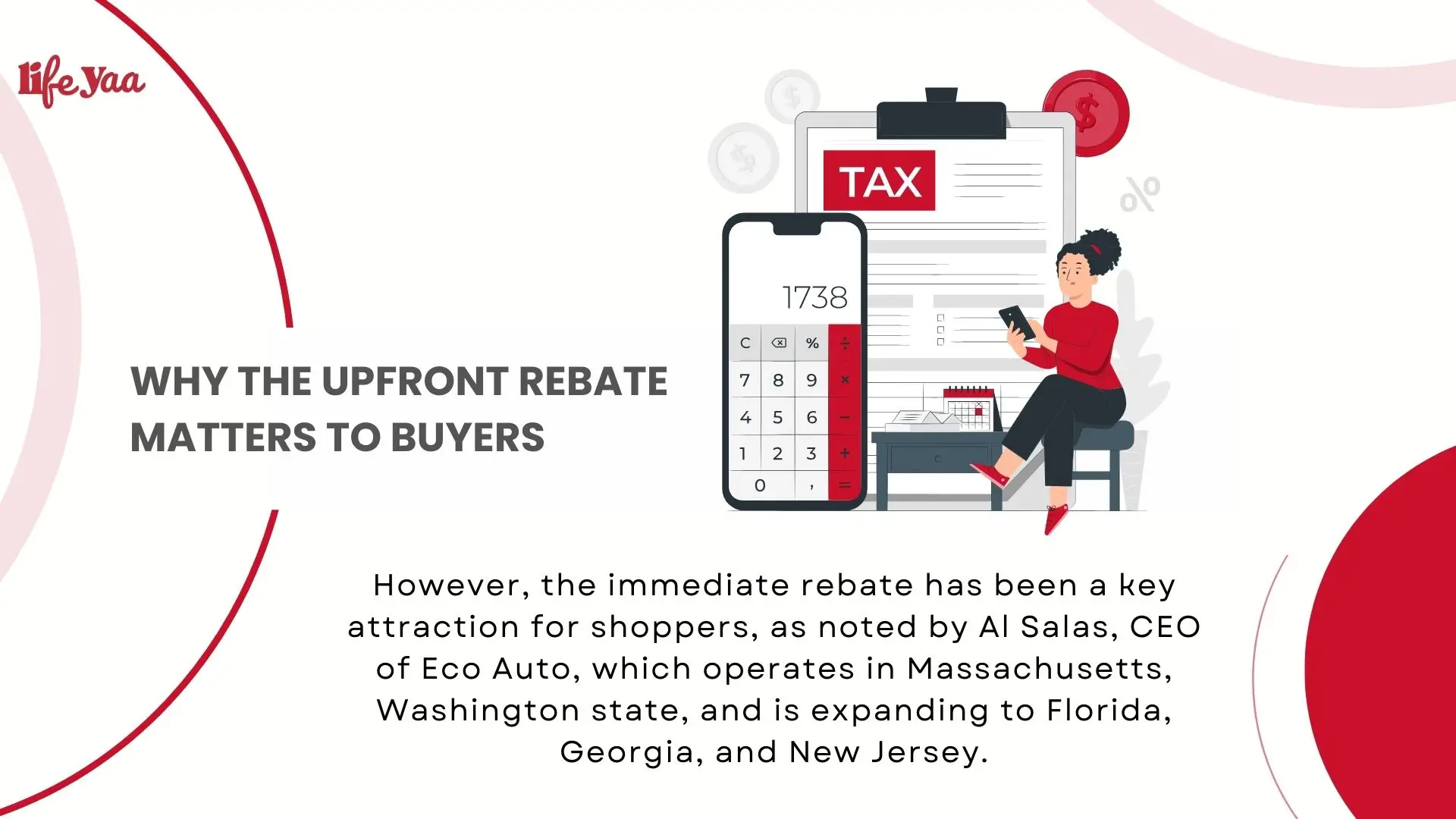As the electric vehicle, EV Tax Credit Crunch: (EV) tax credit crisis worsens amidst the IRS holding on granting and reimbursing federal subsidies for EVs, car dealerships and industry experts are noting confusion, additional costs, and a drop in EV sales as the program deadline approaches (September 30, 2025). These slowdowns, which were exacerbated in mid-September, require dealerships to pay thousands in rebates, without timely reimbursement, providing additional risk to the business when buyers were looking to purchase.
Auto dealers and industry experts say that the IRS has been slow to approve and pay out federal tax breaks for electric vehicles in the last few weeks. This has caused confusion and lower EV sales just days before the program ends.
According to reports from three dealers in different parts of the U.S. that were shared with the media, this problem got worse around the middle of September. Two big trade groups and experts in the automotive industry have confirmed these slowdowns to reporters.
Dealers say they have a tough choice: either pay the costs of giving incentives up front or stop giving them and risk losing business.
“We’re still giving out tax breaks, but it’s a lot of stress,” said Jesse Lore, who owns Green Wave Electric Vehicles in North Hampton, New Hampshire. “We’re about $100,000 short right now.”
Usually, buyers who qualify get the incentive—up to $4,000 off the price of a used EV and $7,500 off the price of a new one—right away during the sale. This can pay for part or all of the down payment or lower the total cost of the car.

Dealerships usually give these customers the money right away after getting quick online approval from the IRS. They then get paid back soon after. Before the middle of September, the process usually took only a few days.
Dealers say that the IRS is now taking a lot longer than usual to approve and pay for these EV incentives. They say it’s hard to get in touch with the agency, so they’re not sure when or if they’ll get their money back.
Official Responses to the Delays
An official from the White House said in an email that all valid EV incentive claims received before the September 30 deadline will be processed and paid.
Robyn Capehart, a spokesperson for the IRS, said in an email that the agency regularly reviews and approves submissions made through the Energy Credits Online portal.
She went on to say that once approved, these reports prove that a vehicle is eligible for the incentive, no matter how long the review takes.
The White House and the IRS both said nothing about the reported slowdowns.
Some dealerships are still offering EV incentives to qualified buyers, hoping that the government will eventually pay them back.
It’s a quiet, festering problem at the worst possible time.”
Scott Case: CEO of Recurrent
Lore said that about a dozen of his submissions since September 15 are still marked as “pending.” Three were approved on Thursday, but none have been paid out yet. He gave journalists screenshots of the transactions.
Lore says that these kinds of delays have been rare since the upfront rebate system started in January 2024.
“We have no idea,” he said.
Lore also said that it was hard to give customers the paperwork they needed to file their taxes on time.
The timing of these EV incentive delays is especially bad.
It’s not clear what the problems are or how big they are.
Some dealers think that the IRS’s staffing issues are to blame for the rise in EV sales, while others think that the Trump administration may have done this on purpose to slow down EV adoption.
Either way, dealers and experts agree that the problems are happening at a very bad time.
The “big beautiful bill” that passed in July and was supposed to extend the EV incentive through 2032 ended it after September 30.
Before the deadline, buyers have been rushing to get EVs at the lower prices.
Cox Automotive says that this led to record sales of new and used EVs in August, and September is expected to be the same.
Still, some dealers are holding back because they don’t want to lend a lot of money without getting it back right away.
“I know some dealers are refusing to continue, saying they’re not getting reimbursed,” Lore said. “Others are holding vehicles and telling buyers they can’t take them until full payment arrives.”
Gary Pretzfeld, co-owner of AutoTrust USA in Miramar, Florida, says the IRS owes him $80,000 to $90,000 for incentives he provided to EV buyers this month.
“There are definitely dealers who can’t sustain this approach financially,” Pretzfeld commented.
The car dealership sector is highly cash-dependent, and these payment lags could create severe liquidity issues during a period of anticipated high EV volume, per Scott Case, CEO of Recurrent, an EV research firm.
“It’s an under-the-radar issue escalating at the most inconvenient moment,” Case told media.
The National Independent Automobile Dealers Association, representing used car sellers, is monitoring the situation, according to spokesman Richard Greene.
“Both dealers and NIADA have reached out to the IRS,” Greene wrote in an email. “We hope the agency processes payments before the program concludes.”
Amy Hunter Wright, a representative for the National Automobile Dealers Association, confirmed that some members are facing delays.
“We’ve heard reports of recent submissions stuck in pending status since last week,” she emailed. “NADA is collaborating with the IRS and Treasury on the portal, and they’ve been responsive.”
Why the Upfront Rebate Matters to Buyers
Dealers aren’t obligated to provide the incentive as an upfront payment.
Buyers can still claim it on their next year’s tax return.
However, the immediate rebate has been a key attraction for shoppers, as noted by Al Salas, CEO of Eco Auto, which operates in Massachusetts, Washington state, and is expanding to Florida, Georgia, and New Jersey.
Salas explained that an upfront incentive reduces monthly financing costs and overall sales tax for those who borrow.

For instance, a used EV buyer might pay $80 to $100 more monthly on a five-year loan without the immediate $4,000 discount.
Some buyers may also struggle to claim the full amount during tax season, as it requires a tax liability, unlike the point-of-sale option available regardless of tax status.
Salas said his submissions from last week have mixed statuses: some approved, others pending.
“As dealers, this puts us in a tough spot since we’re essentially lending the funds,” Salas told reporters. “We’re helping consumers afford new vehicles in many cases.”
The IRS currently owes him around $50,000 in incentives, and he trusts repayment will occur eventually.
Pretzfeld shares similar experiences.
He noted that all his EV sales submissions for incentive approval started showing as “pending” around September 15.
Two from September 16 and 17 have since been approved, with payments pending.
“The process is now extended and unclear,” Pretzfeld said. “That’s what’s alarming everyone.”
The IRS is delay in processing EV tax credits at a particularly challenging time, causing stress on dealers even as they relish a last-minute sales bump before the September 30th deadline. This service bottleneck is a potential threat to EV adoption, as it reveals the larger issue of difficulty in moving to effective models of sustainable transportation; buyers need to hold on to the hope for the incentive, while decision-makers should be clearing away red tape to grow and sustain the market.
▾ ARTICLE SOURCES
We cite primary sources where possible and reputable publishers for context.
⚠️ Disclosure
